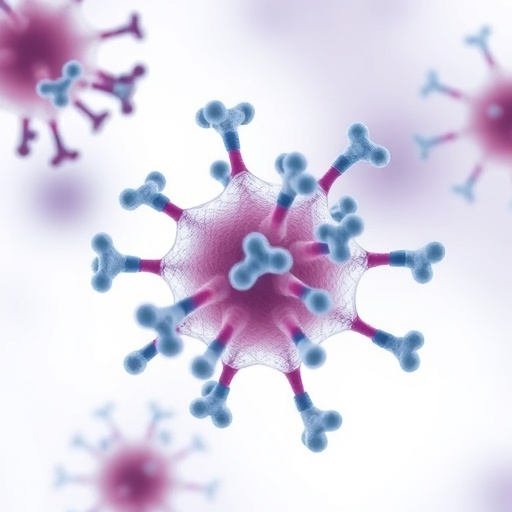In recent years, advances in molecular biology have considerably shaped our understanding of cancer. Amongst these advancements, the exploration of micropeptides has emerged as a pivotal area of research, shedding light on their enigmatic roles in oncogenesis. Micropeptides, small peptide fragments encoded by previously overlooked regions of the genome, are gaining attention because of their potential influence on tumor progression and therapy resistance. Despite their significant presence, the biological implications of these molecules have remained largely obscured, leading researchers to dub them as part of the oncological “dark matter.”
Micropeptides are defined as short polypeptides, typically fewer than 100 amino acids in length. Initially thought to be merely byproducts of larger protein translations, recent studies have confirmed their biological activities and contributions to various cellular processes. These molecules are expressed in various tissues and have been implicated in multiple forms of cancer, suggesting a complex regulatory role within the tumor microenvironment. By identifying the specific functions and mechanisms of action of micropeptides, researchers are beginning to unlock the mysteries surrounding their contribution to tumor biology.
In particular, micropeptides are gaining traction as modulators of gene expression, cellular signaling pathways, and protein synthesis. Their ability to influence fundamental processes such as cell proliferation, apoptosis, and differentiation positions them at the crossroads of cancer biology. Researchers are uncovering how micropeptides can interact with key signaling molecules, thereby actively contributing to tumor growth and metastasis. This capacity to modify crucial pathways may also endow cancer cells with protective mechanisms against current therapeutic strategies, highlighting their involvement in therapy resistance.
One of the critical challenges in cancer research is understanding the genetic alterations that lead to the development and progression of tumors. Micropeptides complicate this narrative by presenting non-canonical coding sequences that are often neglected in traditional genomic studies. Conventional cancer research has focused primarily on large coding proteins, with micropeptides often left unexamined due to their small size and the historical bias towards larger molecules. However, the emerging data suggests that these small peptides may have substantial regulatory roles in gene expression, providing a new layer of complexity in the oncogenic landscape.
Researchers are now employing advanced genomic technologies, such as next-generation sequencing and mass spectrometry, to characterize the landscape of micropeptides more comprehensively. These innovative methodologies allow scientists to not only identify the presence of micropeptides but also elucidate their specific functions and interactions within cellular contexts. As this field evolves, investigators are optimistic that a deeper understanding of micropeptide biology could lead to the identification of innovative therapeutic targets and improved treatment options for cancer patients.
While the potential therapeutic applications of micropeptides are still under exploration, initial findings suggest they may serve as biomarkers for tumor aggressiveness and treatment response. For instance, certain micropeptides have been linked to unfavorable clinical outcomes, indicating their potential utility in stratifying patients based on risk. Early diagnostic and prognostic insights have the power to transform clinical practices, enabling more personalized approaches to cancer management.
Moreover, the discovery of micropeptides in the context of therapy resistance underscores the need for further research. Many cancers develop mechanisms of resistance that thwart the efficacy of standard treatments, and micropeptides may play an essential role in this phenomenon. Their ability to modulate cellular environments and signaling pathways suggests that targeting micropeptide activities could aid in overcoming treatment resistance and improving patient outcomes.
Intriguingly, the potential for micropeptides as therapeutic agents themselves is beginning to be explored. By leveraging their ability to modulate specific pathways, researchers are investigating how synthetic micropeptides or inhibitors may disrupt pro-oncogenic signaling or restore sensitivity to therapies. This approach could usher in a new class of targeted therapies, dramatically altering the landscape of cancer treatment.
As investigations continue, more functional studies are needed to substantiate the biological significance of micropeptides in cancer. Researchers are undertaking systematic analyses to determine how micropeptides interact with their target molecules and decipher their precise mechanisms of action. This information is crucial for unlocking novel therapeutic strategies and elucidating the connectivity of micropeptides to broader oncogenic processes.
The path forward necessitates multidisciplinary collaborations across genetics, molecular biology, and clinical oncology. By synthesizing findings from diverse areas of research, the scientific community can accelerate the development of next-generation cancer therapies grounded in micropeptide biology. Furthermore, enhanced funding and resource allocation toward micropeptide research will likely yield significant dividends, particularly as the field continues to uncover the complex roles these molecules play in tumor dynamics.
As the science surrounding micropeptides matures, there is an urgent need to translate these findings into clinical reality. Bridging the gap between basic science and clinical applications will require integrated efforts and shared insights among researchers, clinicians, and industry partners. By fostering rigorous collaboration and shared commitment, there exists vast potential to unlock novel avenues for therapeutic innovation and improve the lives of cancer patients worldwide.
In conclusion, the once-overlooked realm of micropeptides is evolving into a focal point of cancer research, shedding light on their intricate involvement in tumor progression and therapy resistance. As the scientific community continues to decode the mysteries of these biologically active peptides, there is hope that they will unveil new strategies in cancer management, ultimately leading to more effective treatments and better outcomes for patients facing this devastating disease.
Subject of Research: Micropeptides in cancer progression and therapy resistance.
Article Title: Micropeptides in the oncological dark matter: decoding their roles in tumor progression and therapy resistance.
Article References: Zhang, Q., Yang, H., Wang, C. et al. Micropeptides in the oncological dark matter: decoding their roles in tumor progression and therapy resistance. J Transl Med 23, 1351 (2025). https://doi.org/10.1186/s12967-025-07310-8
Image Credits: AI Generated
DOI: https://doi.org/10.1186/s12967-025-07310-8
Keywords: Micropeptides, cancer progression, therapy resistance, tumor biology, gene expression, therapeutic targets.




